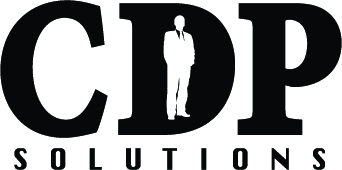Blog
Strategies for Effective Supply Chain Management in the Metals Industry

Strategies for Effective Supply Chain Management in the Metals Industry
In the highly competitive metals industry, effective supply chain management is crucial for success. With constant demand for raw materials, efficient production processes, and timely delivery of finished products, businesses in this sector must ensure that their supply chain operates seamlessly. In this blog post, we will explore strategies and best practices for effective supply chain management in the metals industry. We will delve into topics such as supplier relationship management, demand forecasting, inventory management, logistics optimization, and risk mitigation. By implementing these strategies, businesses can enhance their supply chain operations and gain a competitive edge in the market.
1. Supplier Relationship Management
Building strong relationships with suppliers is key to ensuring a smooth supply chain. Businesses in the metals industry should establish clear lines of communication, negotiate mutually beneficial contracts, and collaborate closely with suppliers to optimize the procurement process. By working closely with suppliers, businesses can streamline the sourcing of raw materials and ensure consistent quality and timely delivery. For example, a steel manufacturer could maintain strong relationships with steel producers to ensure a steady supply of raw materials at competitive prices.
2. Demand Forecasting
Accurately predicting demand is essential for efficient supply chain management. By analyzing historical data, market trends, and customer insights, businesses in the metals industry can forecast demand and adjust their production schedules accordingly. Demand forecasting helps minimize the risk of overstocking or understocking, enabling businesses to optimize inventory levels and reduce carrying costs. For instance, a copper wire manufacturer could use demand forecasting to determine the appropriate amount of copper needed to meet customer orders without holding excess inventory.
3. Inventory Management
Efficient inventory management is crucial for minimizing costs and improving customer satisfaction. Businesses in the metals industry should adopt inventory control techniques such as just-in-time (JIT) inventory, demand-driven replenishment, and smart forecasting to optimize inventory levels. By reducing excess inventory, businesses can improve cash flow and minimize the risk of obsolescence. Additionally, by ensuring the availability of the right products at the right time, businesses can enhance customer satisfaction and loyalty. For example, a metal fabrication company could implement JIT inventory management to minimize inventory carrying costs and enhance responsiveness to customer demands.
4. Logistics Optimization
Streamlining transportation and logistics processes is essential for efficient supply chain management in the metals industry. By leveraging technology and data analytics, businesses can optimize routing, consolidate shipments, and track the movement of raw materials and finished products in real-time. This enables businesses to minimize transportation costs, reduce lead times, and improve overall supply chain visibility. For instance, a steel distributor could use route optimization software to plan the most efficient delivery routes, reducing fuel costs and improving delivery times.
5. Risk Mitigation
Managing risks is a critical aspect of effective supply chain management in the metals industry. Businesses should identify potential risks such as raw material shortages, geopolitical instability, natural disasters, and disruptions in transportation. By implementing risk mitigation strategies such as dual sourcing, safety stock, and contingency planning, businesses can minimize the impact of unforeseen events on their supply chain. For example, a precious metals refinery could diversify its supply sources to mitigate the risk of shortages caused by political or economic instability in a specific region.
By implementing these strategies and best practices, businesses in the metals industry can enhance their supply chain operations and gain a competitive edge in the market. Whether it’s building strong relationships with suppliers, accurately forecasting demand, optimizing inventory management, streamlining logistics processes, or mitigating risks, each strategy plays a crucial role in maximizing productivity and profitability. By embracing these strategies and continuously improving supply chain management practices, businesses can position themselves for long-term success in the dynamic metals industry.
